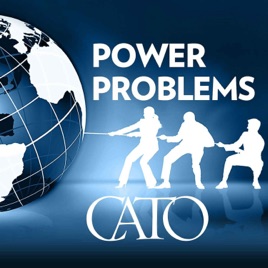
Advertise on podcast: Power Problems
Rating
4.5 from
Country
This podcast has
174 episodes
Language
Publisher
Explicit
No
Date created
2017/09/12
Average duration
45 min.
Release period
15 days
Description
Power Problems is a bi-weekly podcast from the Cato Institute. Host John Glaser offers a skeptical take on U.S. foreign policy, and discusses today’s big questions in international security with distinguished guests from across the political spectrum. Podcast Hashtag: #FPPowerProblems. Hosted on Acast. See acast.com/privacy for more information.
Social media
Check Power Problems social media presence
Podcast episodes
Check latest episodes from Power Problems podcast
The Will to Hegemony
2024/02/20
Paul Poast, associate professor of political science at University of Chicago, discusses the concept of hegemony in international relations and puts forth several models to explain a state's willingness to take on the global responsibilities of a hegemon. He also explains hegemonic stability theory, analyzes the Biden administration's democracy vs autocracy rhetoric, and suggests the United States may be a hegemon in decline.
Show Notes
Paul Poast bioPaul Poast, "Don't Blame Lack of Will for the United States' Waning Hegemony," World Politics Review, January 26, 2024Paul Poast, "Biden's 'Defending Democracy' Agenda is All Talk," World Politics Review, February 2, 2024.
Hosted on Acast. See acast.com/privacy for more information.
more
Elite Politics & the Hawkish Bias in US Foreign Policy
2024/02/06
Elite politics shape and constrain democratic leaders in decisions about the use of force and tend to induce a hawkish bias into war-time foreign policy. So says Columbia University professor Elizabeth N. Saunders in her forthcoming book The Insider's Game: How Elites Make War and Peace. She explores how elite politics influenced presidential decisions in U.S. wars including Korea, Vietnam, Iraq, Afghanistan, and beyond. She also discusses the problems of the public's rational ignorance of foreign policy and the tensions between an elite-centric foreign policy and democratic values, among other topics.
Elizabeth N. Saunders bioElizabeth N. Saunders, The Insider’s Game: How Elites Make War and Peace (Princeton, NJ: Princeton University Press, 2024). Forthcoming. Elizabeth N. Saunders, “Elites in the Making and Breaking of Foreign Policy,” Annual Review of Political Science 25 (May 2022): pp. 219-240.Chaim Kauffman, “Threat Inflation and the Failure of the Marketplace of Ideas: The Selling of the Iraq War,” International Security 29, no. 1 (Summer 2004): pp. 5-48.
Hosted on Acast. See acast.com/privacy for more information.
more
Managing Instability in Europe, Asia, & the Middle East
2024/01/23
Robert Manning, distinguished fellow at the Stimson Center, discusses the increasing instability in the Middle East stemming from the ongoing Israel-Gaza war, Russia's war in Ukraine and the implications for the US role in the world, and rising US-China tensions over Taiwan. He also talks about the risks of emerging economic nationalism, middle powers, the US addiction to primacy and American exceptionalism, and the problems of trying to manage global politics from Washington.
Show Notes
Robert Manning bioMatthew Burrows and Robert A. Manning, “The ‘New’ New Middle East and Its Consequences,” Stimson Center, October 11, 2023. Robert A. Manning and Matthew Burrows, “Red Cell: The Fallacy of Perpetual US Primacy,” Stimson Center, February 7, 2023.Matthew Burrows and Robert A. Manning, “Is the US Getting Multilateralism Wrong?” Stimson Center, April 11, 2023.Robert A. Manning, “Is a Chinese Invasion of Taiwan the Most Likely Scenario?” Stimson Center, October 27, 2023.
Hosted on Acast. See acast.com/privacy for more information.
more
Arms, Influence, and the Military Industrial Complex
2024/01/09
William Hartung of the Quincy Institute for Responsible Statecraft explains the problem of retired military brass working for the arms industry and how this revolving door tends to militarize U.S. foreign policy. He also discusses China's military buildup and why it shouldn't automatically translate to bigger U.S. defense budgets. Other topics include the military industrial complex, Eisenhower's Farewell Address, the Pentagon's inability to pass an audit, and threat inflation, among others.
Show Notes
William Hartung and Dillon Fisher, "March of the Four-Stars: The Role of Retired Generals and Admirals in the Arms Industry, " Quincy Brief No. 47, October 4, 2023.William Hartung, "Reality Check: Chinese Military Spending in Context," Costs of War Project at Brown University's Watson Institute, December 5, 2023.William Hartung, "Good Times for the Military Industrial Complex," TomDispatch.com, November 12, 2023.
Hosted on Acast. See acast.com/privacy for more information.
more
The Middle East Is a Powder Keg. Washington Is Making It Worse
2023/12/26
Renewed conflict in the Middle East increases the costs and risks of America's entanglement in the region, and despite the strategic case for retrenchment, there is no sign of a substantial change to U.S. foreign policy there. Jennifer Kavanagh of the Carnegie Endowment for International Peace discusses America's costly, security-first approach to the Middle East, the Biden administration's support for Israel, policy inertia and the reluctance to change posture, the risks of escalation, backlash, and overstretch, and why the use of force in U.S. foreign policy is increasingly ineffective.
Show Notes
Jennifer Kavanagh bioJennifer Kavanagh and Frederic Wehrey, "Washington's Looming Middle Eastern Quagmire," Foreign Affairs, November 24, 2023.Jennifer Kavanagh and Bryan Frederick, "Why Force Fails," Foreign Affairs, March 30, 2023
Hosted on Acast. See acast.com/privacy for more information.
more
The Economic War on China Is Self-Defeating
2023/12/12
Weaponizing global supply chains is self-defeating and alters supply chain networks in ways that accelerate, rather than slow China’s rise. University of Connecticut assistant professor Miles Evers discusses how business-state relationships affect international relations. He also describes how economic coercion drives away potential allies and business, which allows China to innovate and increase its share of global trade despite US sanctions.
Show Notes
Miles Evers bioLing S. Chen and Miles M. Evers, “’Wars without Gun Smoke’: Global Supply Chains, Power Transitions, and Economic Statecraft,” International Security 48, no. 2 (Fall 2023): pp. 164-204.Miles M. Evers, “Discovering the Prize: Information, Lobbying, and the Origins of US–Saudi Security Relations,” European Journal of International Relations 29, no. 1 (March 2023): pp. 104-128.Miles M. Evers, “Just the Facts: Why Norms Remain Relevant in an Age of Practice,” International Theory 12, no. 2 (2020): pp. 220-230.Geoffrey Gertz and Miles M. Evers, “Geoeconomic Competition: Will State Capitalism Win?” The Washington Quarterly 43, no. 2 (2020): pp. 117-136.
Hosted on Acast. See acast.com/privacy for more information.
more
"Credibility" Is Not What You Think It Is
2023/11/28
Common but unsound conceptions of credibility and reputation in international politics have persistently promoted unnecessary militarism and prevented the United States from shedding even unnecessary security commitments abroad. Boston College assistant professor Joshua Byun explains the concepts of reputation and credibility in international politics and uses survey data to undermine the conventional wisdom that a reputation for resolve is necessary for a country’s credibility. He also discusses the implications of situational resolve and the US withdrawal from Afghanistan on allies’ opinions of US credibility.
Show Notes
Joshua Byun bioD.G. Kim, Joshua Byun, and Jiyoung Ko, “U.S. Alliance Credibility after the 2021 Afghanistan Withdrawal,” Contemporary Security Policy Blog, September 6, 2023.Joshua Byun and Do Young Lee, “The Case against Nuclear Sharing in East Asia,” The Washington Quarterly 44, no. 4 (Winter 2021): 67-87.D.G. Kim, Joshua Byun, and Jiyoung Ko, “Remember Kabul? Reputation, Strategic Contexts, and American Credibility after the Afghanistan Withdrawal,” Contemporary Security Policy (September 5, 2023).
Hosted on Acast. See acast.com/privacy for more information.
more
The Realism of Reinhold Niebuhr
2023/11/14
Christopher Chivvis, director of the American Statecraft Program at the Carnegie Endowment for International Peace, discusses the work of renowned realist thinker Reinhold Niebuhr. He explores Niebuhr’s views on war, politics, and American Exceptionalism, and argues that Niebuhr's restraint-oriented ideas are just what is needed in contemporary debates about U.S. foreign and national security policy, particularly with respect to the rivalry with China.
Show Notes
Christopher Chivvis bioChristopher S. Chivvis, “The Humility of Restraint: Niebuhr’s Insights for a More Grounded Twenty-First-Century American Foreign Policy,” Carnegie Endowment for International Peace working paper, November 22, 2021.Christopher S. Chivvis, “Some Politicians Seem Comfortable with the Idea of a New Cold War. They Shouldn’t.” The Guardian, February 22, 2023.
Hosted on Acast. See acast.com/privacy for more information.
more
Israel, Gaza, and America’s Broken Middle East Policy
2023/10/31
Justin Logan, Cato’s director of defense and foreign policy studies, and Jon Hoffman, a foreign policy analyst at Cato, discuss the outbreak of war between Israel and Hamas and the imperative of avoiding further U.S. entanglement in the Middle East. They talk about the deep problems with the Abraham Accords, Biden's misguided bid for a Saudi-Israeli normalization deal, how client states employ "reverse leverage" on their U.S. patron, whether Israel can avoid America's post-9/11 mistakes, and the prospects for a genuine change in U.S. policy towards this region, among other issues.
Show Notes
Justin Logan bioJon Hoffman bioJon Hoffman and Justin Logan, “Time to Change Course in the Middle East,” National Interest, October 21, 2023.Justin Logan, “The Hamas-Israel War,” Cato at Liberty, October 14, 2023.Jon Hoffman, “Pariah or Partner? Reevaluating the U.S.-Saudi Relationship,” Cato Institute policy analysis no. 961, September 20, 2023.Jon Hoffman, “A Shaky Foundation,” Cato Institute policy analysis no. 939, December 20, 2022.Justin Logan, “The Case for Withdrawing from the Middle East,” Defense Priorities, September 30, 2020.
Hosted on Acast. See acast.com/privacy for more information.
more
America Is Eroding the International Order
2023/10/17
The U.S.'s frequent use of force abroad erodes the international order's most fundamental principles of sovereignty and non-intervention. Yale Law School professor Oona Hathaway discusses the erosion of domestic constraints on presidential war powers and the increasing official resort to untenable self-defense doctrines to justify its military actions under international law. She also explains why chipping away at the prohibition on the use of force undermines international order, among other topics.
Show Notes
Oona Hathaway bioOona A. Hathaway, “How the Expansion of ‘Self-Defense’ Has Undermined Constraints on the Use of Force,” Just Security, September 18, 2023.Oona A. Hathaway and Scott J. Shapiro, The Internationalists: How a Radical Plan to Outlaw War Remade the World (New York: Simon & Schuster, 2017).Oona A. Hathaway et al., “Yemen: Is the U.S. Breaking the Law?” Harvard National Security Journal 10 (2019).Oona Hathaway, “National Security Lawyering in the Post-War Era: Can Law Constrain Power?” UCLA Law Review 68, rev. 2 (2021).
Hosted on Acast. See acast.com/privacy for more information.
more
Human Psychology and Nuclear Brinkmanship
2023/10/03
Rose McDermott, Professor of International Relations at Brown University, argues that dominant theories of nuclear brinkmanship lack a nuanced understanding of the crucial factor of human psychology. She discusses the psychology of political leaders, the rational actor model, Thomas Schelling's notion of "threats that leave something to chance," the psychology of revenge, the coercive utility of nuclear weapons, and why nuclear deterrence may not be as stable as many people think, among other topics.
Show NotesRose McDermott bioReid B.C. Pauly and Rose McDermott, “The Psychology of Nuclear Brinkmanship,” International Security 47, no. 3 (2023): pp. 9-51.James W. Davis and Rose McDermott, “The Past, Present, and Future of Behavioral IR,” International Organization 75, no. 1 (2022): pp. 147-177.Rose McDermott, Anthony C. Lopez, and Peter K. Hatemi, “’Blunt Not the Heart, Enrage It’: The Psychology of Revenge and Deterrence,” Texas National Security Review 1, no. 1 (November 2017): pp. 68-88.
Hosted on Acast. See acast.com/privacy for more information.
more
Middling Powers & U.S. Decline
2023/09/19
Many countries in the Global South would like a more advantageous position in the international order. Sarang Shidore, director of Quincy Institute for Responsible Statecraft’s Global South Program, discusses why these countries are dissatisfied, what changes they would like to see, and how Washington can respond. He also discusses China strategy in light of the Global South and the role of BRICS and the seemingly tepid response from the Global South in response to Russia’s invasion of Ukraine.
Show Notes
Sarang Shidore bioSarang Shidore, “American Power Just Took a Big Hit,” New York Times, September 1, 2023.Sarang Shidore, “The Return of the Global South,” Foreign Affairs, August 31, 2023.Sarang Shidore, “The Global South’s BRICS Play Should Not Be Dismissed,” The Nation, August 17, 2023.Sarang Shidore, “The G20 Is in a Precarious State, but Global Problems Don’t Take a Breather,” The Diplomat, September 8, 2023.
Hosted on Acast. See acast.com/privacy for more information.
more
Podcast reviews
Read Power Problems podcast reviews
Andieo1997
2022/12/20
Brilliant!
This is the perfect choice for anyone interested in learning more about foreign policy! Each episode is informative and enjoyable.
Harmony4USA
2023/01/20
Biden’s Foreign Policy Promise aka Trump did it all wrong
Very disappointing episode. Trump certainly wasn’t perfect and his approach to foreign policy was not conventional. Yet he accomplished some positiv...
more
jeallen92
2021/11/09
Wonderful show
The guests are always compelling and clearly know what they’re talking about. John Glaser is a fantastic host
enelsonpa
2022/10/20
Stabilizing Great Power Rivalry Episode
Walt’s evident answer for solving great power rivalry is to dissolve NATO and elect a Republican as President. None of Prof Walt’s total critiques of ...
more
PNHLimey
2022/05/04
3-May-2022 | Paul Pillar Drivel
The TDS is strong in this one!
BurCap
2021/09/20
Great podcast
This is one of the best IR/foreign policy podcasts out there. I look forward to every episode.
SeminoleJack
2020/05/09
This is great stuff!
Love all foreign policy and IR stuff but particularly the discussions on civil-military relations.
Otis Junior Nixon Jr.
2021/04/06
This dude from Swarthmore is an idiot.
I can’t believe he’s a professor. He doesn’t know the first thing about Vietnam, Iran, Iraq or Afghanistan.
Brad Davies
2019/08/09
Intro sound too loud
Truly great pod. Either intro music goes on too long or it needs to be more muted when the host begins talking. They sound more clashing than compleme...
more
Donut Officer
2020/04/21
Bipolar
Love it and Hate it.
I enjoy the focus on liberty in domestic policy and find the foreign relations application prone to failure.
Surprised to hear ...
more
Podcast sponsorship advertising
Start advertising on Power Problems & sponsor relevant audience podcasts
You may also like these government Podcasts
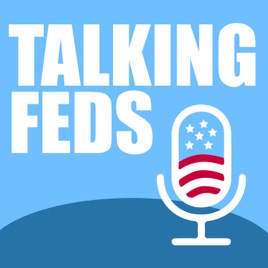
4.8
3695
286
Talking Feds
Harry Litman
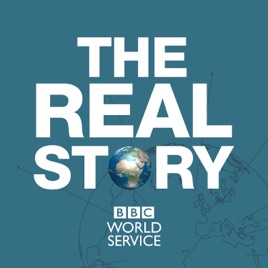
4.6
269
300
The Real Story
BBC World Service
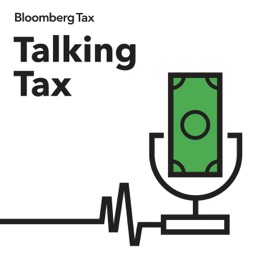
3.9
95
327
Talking Tax
Bloomberg Tax

4.9
84
69
UCLA Housing Voice
UCLA Lewis Center for Regional Policy Studies
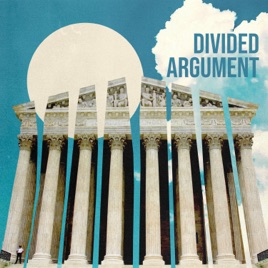
4.8
547
63
Divided Argument
Will Baude, Dan Epps
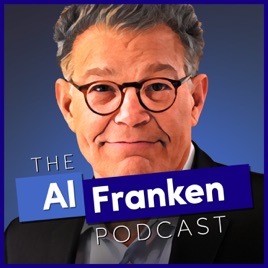
4.6
7442
265
The Al Franken Podcast
ASF Productions

4.7
3177
291
Intelligence Matters
CBS News

4.7
3378
601
Zero Blog Thirty
Barstool Sports

4.8
72
222
Babel: Translating the Middle East
Center for Strategic and International Studies

4.8
158
98
New Polity
New Polity




